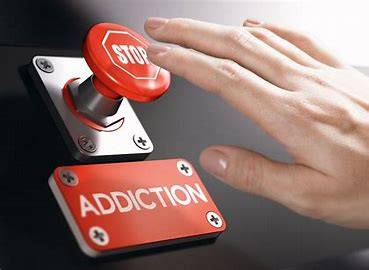How to Stop Addiction
Addiction can take many forms, from substance abuse to unhealthy behaviors such as gambling, gaming, or overeating. Breaking free from addiction is challenging but entirely possible with the right strategies and support. Here are practical steps to help overcome addiction and regain control of your life.
1. Acknowledge the Problem
The first and most crucial step in overcoming addiction is recognizing and accepting that you have a problem. Denial often prevents people from seeking help. Be honest with yourself about how the addiction is affecting your life, relationships, and well-being. Self-awareness is the foundation for change.
2. Identify Triggers
Addiction is often tied to specific triggers such as stress, social environments, or emotional struggles. Take time to identify the situations, people, or feelings that lead you toward addictive behaviors. Understanding your triggers will help you create strategies to avoid or cope with them effectively.
3. Seek Professional Help
Overcoming addiction is rarely a journey you can take alone. Seek professional assistance, such as counseling, therapy, or medical intervention. Therapists specializing in addiction can provide you with tools to understand your behavior and develop healthier coping mechanisms. In cases of substance addiction, medical professionals can assist with detoxification and treatment.
4. Build a Support System
A strong support network is essential for recovery. Surround yourself with people who encourage your progress and hold you accountable. Join support groups, such as Alcoholics Anonymous or Narcotics Anonymous, where you can connect with others who share similar experiences. Friends and family who genuinely care can also be valuable allies in your journey.
5. Adopt Healthy Habits
Replace addictive behaviors with healthier alternatives. Regular exercise, mindfulness practices like meditation, and engaging hobbies can help you manage stress and build a fulfilling life without addiction. Developing new routines gives you a sense of purpose and helps fill the void left by the addictive behavior.
6. Be Patient and Persistent
Recovery is a process, not an overnight transformation. There will be setbacks, but what matters is your ability to keep moving forward. Celebrate small victories and learn from any relapses. Perseverance is key to long-term success.
Conclusion
Overcoming addiction requires determination, support, and a willingness to change. By acknowledging the problem, seeking help, and adopting healthier habits, you can break free from the cycle of addiction and lead a more fulfilling life. Remember, you are not alone, and help is always available.



No comments yet
Be the first to share your thoughts!